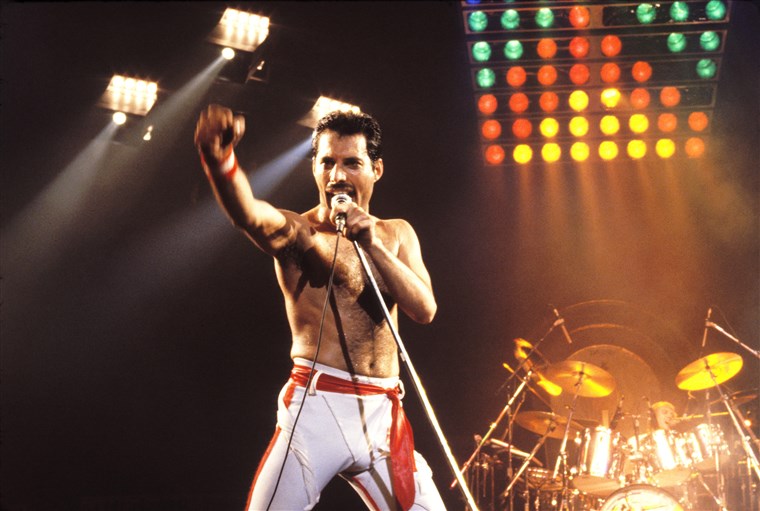If I had to define the music of Queen in one word, it would be “grand.” Their songs were expansive and larger than life, with a range that included any number of iterations – from electronic pop to throwback rockabilly. Every track seemed to have one goal: to give the listener an escape from everyday life. Their music was an invitation to something greater, and for the duration of a multipart operetta or a crowd sing-along, you are transported through a door to something different. It’s no wonder the British rock band had such avid and influential fandom in Latin America – a history that is briefly referenced in Bohemian Rhapsody, the Freddie Mercury biopic that has reignited interest in Queen’s extraordinary career and legacy.
The Freddie Mercury-led quartet rose to fame during the ‘70s and ‘80s, a time when many Latin American countries were facing repressive military governments and dictatorships, economic upheaval and social unrest. This gave the escapist nature of Queen’s music greater depth for fans, but it also made it difficult for the band to meet their Latin American fans on the regular. Indeed, their only tour of South America happened in 1981.
At the time, they were touring in support of the 1980 album The Game – which includes hits like “Another One Bites The Dust” and “Crazy Little Thing Called Love” – and their short trek has become the stuff of myths and legends. The tour began on February 28, with two consecutive nights at Estadio Velez Sarsfield in Buenos Aires, where the band drew a crowd of 300,000 people –the largest single concert crowd in Argentine history as of 1982 – according to an article published at the time in the Washington Post. While playing massive stadiums might seem glamorous, the truth was much more gruesome; at the time Argentina was in the midst of its ‘Dirty War,’ an infamously violent campaign waged by Argentina’s military dictatorship against its left wing opponents. During this time, stadiums were used as prisons and moats were built around them to prevent people from escaping; Queen had to bring their own artificial turf to cover them, according to an article in Rolling Stone in 1981.
In the 2011 documentary Days Of Our Lives, the band remembers that their tour dates were initially met with resistance from the Argentine military dictatorship, which feared it would be politically dangerous to allow so many young people to gather in one space. While the government eventually relented, they sent armed guards to meet the band at the airport, and, according to a 2016 biography of Freddie Mercury written by Mark Langthorne and Matt Richards, likely used secret police to surveil the band during their stay.
Queen played Brazil next, performing at Estádio do Morumbi in Sao Paolo, and it was here that one of the most moving moments in Queen history happened, when 130,000 fans sang along to “Love Of My Life” – a scene recreated in the Bohemian Rhapsody biopic. At the time, few international bands viewed Brazil as an important tour destination, and the success of Queen’s shows there helped cement them as a must stop for bands touring in South America.
In Venezuela, Queen only played one of the three shows originally planned in the city of Caracas, since national mourning was called after former president Romulo Betancourt died. In Mexico, they played three shows, one in Monterrey and two in Puebla, during which Mercury was said to have appeared wearing an oversized sombrero, prompting the crowd to throw shoes at the band, according to a witness in the audience. Afterward, Freddie left the stage, thanking the crowd for their shoes and called the crowd a “bunch of tacos.”
Queen would only return to Brazil one more time in 1985 for the Rock In Rio festival before Mercury’s tragic death.







